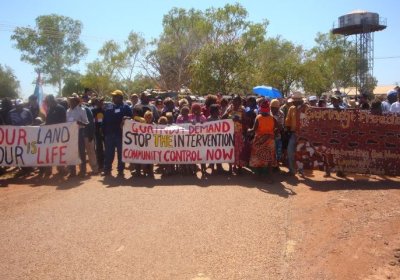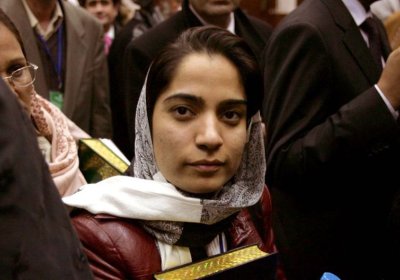We’ve heard it all before — “the larger the cake, the larger each slice”. The bigger the economy gets, the more productive we are, the more we should expect to share in the wealth.
Trouble is it’s not true: while the economy grows and profits rise, bosses are cutting jobs and attacking our conditions. While they clean up, we lose out. And unless we fight to stop it, the imbalance will only get worse.
Analysis
The announcement by BlueScope that 1100 workers will be sacked from the local steel industry has sent shockwaves through the community and much of the country.
Another 200 people could be sacked from the Port Kembla wharves and at least 100 more local workplaces will be seriously affected.
Many of the sacked workers have been at the steelworks for decades. They are now being told to get out of town, to move to Queensland or Western Australia, to forget about their ties to Wollongong, because other corporations may need them somewhere else.
A poll commissioned by new online campaign NewsStand found 61% of Australian people agreed a “public inquiry into the Australian media is necessary so the public can better understand the relationship between politicians, corporations and media outlets”.
NewsStand, backed by GetUp, then launched an online petition on August 11 calling for parliament to “publicly scrutinise the media landscape as a whole”, which quickly gathered almost 30,000 signatures.
1. Profit maximisation is the iron rule of capitalism, setting limits to ecological reform. A profit-based economy that requires continuous economic growth makes ecological catastrophes inevitable.
2. Voluntarism, technological fixes and market incentives as they have been constructed cannot achieve even the weak greenhouse gas targets governments have committed to. Even so, many governments, such that of the US, haven’t even initiated these market mechanisms like carbon taxes or cap and trade.
Fred Magdoff co-author, with John Bellamy Foster, of What Every Environmentalist Needs to Know about Capitalism: A Citizen’s Guide to Capitalism and the Environment, spoke to Scott Borchert of Monthly Review Press.
Foster is a featured speaker at the Climate Change Social Change activist conference in Melbourne over September 30 to October 3.
* * *
Why did you decide to write a book like this, and why now?
An article, “Targeted chocolatier Max Brenner ‘a man of peace’”, in the August 13 Australian by Cameron Stewart purported to be an examination of issues around the targeting of Max Brenner by Palestine solidarity protesters as part of the global boycott, divestment, and sanctions (BDS) campaign.
“It’s just a great honour to be here,” iconic singer-songwriter Paul Kelly told Green Left Weekly. “What happened here is a fascinating and amazing story.” Kev Carmody, another legend of Australian music, added: “It’s brought all these people together from diverse backgrounds and from all across the country and it’s an honour to the strength of Gurindji people.”
The land around Muckaty Station, 120 kilometres north of Tennant Creek in the Northern Territory, was nominated as a possible site for a nuclear waste dump by the Northern Land Council in May 2007. This was accepted by the federal government in September 2007.
Natalie Wasley from the Beyond Nuclear Initiative told Green Left Weekly: “A small group of traditional owners, hoping for cash for their impoverished community and improved services like roads, housing and education, agreed to the dump site. However, many other traditional owners remain opposed to the plan.
The day after the Barry O’Farrell Coalition government was elected in NSW in March, NSW Business Chamber CEO Stephen Cartwright said he wanted action in the first 100 days of the new government.
He said business wanted O’Farrell to cut government spending, sign up to the weaker federal occupational health and safety laws (OH&S), appoint a Small Business Commissioner, establish Infrastructure NSW, and produce the first report card on the progress of the Pacific Highway upgrade.
The August 31 decision of the High Court to stop the Labor government’s bid to deport up to 800 asylum seekers to Malaysia is welcome news and a success for the refugee rights campaigners and the lawyers who led the case.
But the judgement has not, as many hoped, spurred the government to change direction.
In fact, immigration minister Chris Bowen said the government may even now consider reopening the Nauru detention centre and was “not ruling anything in or out”.
Private Matthew Lambert became the 29th Australian solider to die in the war in Afghanistan on August 22. Most Australians disagree with the war, but the two big parties remain unswerving in their support of the US-NATO led occupation.
Malalai Joya, a former Afghan MP and outspoken anti-war activist, is visiting Australia for a third time on the eve of the 10-year anniversary of the invasion of Afghanistan.
The Sydney Stop the War Coalition, the Melbourne Writers Festival and the Support Association for the Women of Afghanistan - Australia are the hosts of Joya’s Australian tour.
Renowned Marxist economist and ecologist John Bellamy Foster is a feature guest speaker at the World at a Crossroads: Climate Change Social Change conference, which will take place in Melbourne over September 30 to October 3.
He spoke to Green Left Weekly’s Peter Boyle about capitalism’s growing economic and environmental contradictions.
* * *
- Previous page
- Page 433
- Next page











